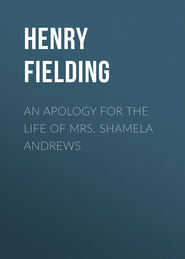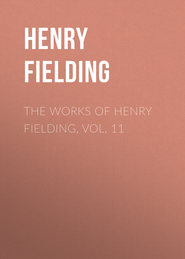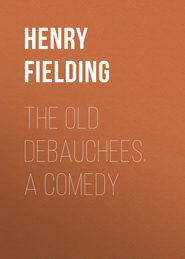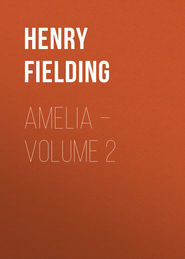По всем вопросам обращайтесь на: info@litportal.ru
(©) 2003-2024.
✖
Amelia – Complete
Настройки чтения
Размер шрифта
Высота строк
Поля
Amelia very readily accepted the favour which Mrs. Ellison offered her; but Booth exprest some reluctance. “Upon my word, my dear,” said he, with a smile, “this behaviour of ours puts me in mind of the common conduct of beggars; who, whenever they receive a favour, are sure to send other objects to the same fountain of charity. Don’t we, my dear, repay our obligations to my lord in the same manner, by sending our children a begging to him?”
“O beastly!” cries Mrs. Ellison; “how could such a thought enter your brains? I protest, madam, I begin to grow ashamed of this husband of yours. How can you have so vulgar a way of thinking? Begging, indeed! the poor little dear things a begging! If my lord was capable of such a thought, though he was my own brother instead of my cousin, I should scorn him too much ever to enter his doors.” “O dear madam!” answered Amelia, “you take Mr. Booth too seriously, when he was only in jest; and the children shall wait upon you whenever you please.”
Though Booth had been a little more in earnest than Amelia had represented him, and was not, perhaps, quite so much in the wrong as he was considered by Mrs. Ellison, yet, seeing there were two to one against him, he wisely thought proper to recede, and let his simile go off with that air of a jest which his wife had given it.
Mrs. Ellison, however, could not let it pass without paying some compliments to Amelia’s understanding, nor without some obscure reflexions upon Booth, with whom she was more offended than the matter required. She was indeed a woman of most profuse generosity, and could not bear a thought which she deemed vulgar or sneaking. She afterwards launched forth the most profuse encomiums of his lordship’s liberality, and concluded the evening with some instances which he had given of that virtue which, if not the noblest, is, perhaps, one of the most useful to society with which great and rich men can be endowed.
The next morning early, serjeant Atkinson came to wait on lieutenant Booth, and desired to speak with his honour in private. Upon which the lieutenant and serjeant took a walk together in the Park. Booth expected every minute when the serjeant would open his mouth; under which expectation he continued till he came to the end of the mall, and so he might have continued till he came to the end of the world; for, though several words stood at the end of the serjeant’s lips, there they were likely to remain for ever. He was, indeed, in the condition of a miser, whom a charitable impulse hath impelled to draw a few pence to the edge of his pocket, where they are altogether as secure as if they were in the bottom; for, as the one hath not the heart to part with a farthing, so neither had the other the heart to speak a word.
Booth at length, wondering that the serjeant did not speak, asked him, What his business was? when the latter with a stammering voice began the following apology: “I hope, sir, your honour will not be angry, nor take anything amiss of me. I do assure you, it was not of my seeking, nay, I dare not proceed in the matter without first asking your leave. Indeed, if I had taken any liberties from the goodness you have been pleased to shew me, I should look upon myself as one of the most worthless and despicable of wretches; but nothing is farther from my thoughts. I know the distance which is between us; and, because your honour hath been so kind and good as to treat me with more familiarity than any other officer ever did, if I had been base enough to take any freedoms, or to encroach upon your honour’s goodness, I should deserve to be whipt through the regiment. I hope, therefore, sir, you will not suspect me of any such attempt.”
“What can all this mean, Atkinson?” cries Booth; “what mighty matter would you introduce with all this previous apology?”
“I am almost ashamed and afraid to mention it,” answered the serjeant; “and yet I am sure your honour will believe what I have said, and not think anything owing to my own presumption; and, at the same time, I have no reason to think you would do anything to spoil my fortune in an honest way, when it is dropt into my lap without my own seeking. For may I perish if it is not all the lady’s own goodness, and I hope in Heaven, with your honour’s leave, I shall live to make her amends for it.” In a word, that we may not detain the reader’s curiosity quite so long as he did Booth’s, he acquainted that gentleman that he had had an offer of marriage from a lady of his acquaintance, to whose company he had introduced him, and desired his permission to accept of it.
Booth must have been very dull indeed if, after what the serjeant had said, and after what he had heard Mrs. Ellison say, he had wanted any information concerning the lady. He answered him briskly and chearfully, that he had his free consent to marry any woman whatever; “and the greater and richer she is,” added he, “the more I shall be pleased with the match. I don’t enquire who the lady is,” said he, smiling, “but I hope she will make as good a wife as, I am convinced, her husband will deserve.”
“Your honour hath been always too good to me,” cries Atkinson; “but this I promise you, I will do all in my power to merit the kindness she is pleased to shew me. I will be bold to say she will marry an honest man, though he is but a poor one; and she shall never want anything which I can give her or do for her, while my name is Joseph Atkinson.”
“And so her name is a secret, Joe, is it?” cries Booth.
“Why, sir,” answered the serjeant, “I hope your honour will not insist upon knowing that, as I think it would be dishonourable in me to mention it.”
“Not at all,” replied Booth; “I am the farthest in the world from any such desire. I know thee better than to imagine thou wouldst disclose the name of a fair lady.” Booth then shook Atkinson heartily by the hand, and assured him earnestly of the joy he had in his good fortune; for which the good serjeant failed not of making all proper acknowledgments. After which they parted, and Booth returned home.
As Mrs. Ellison opened the door, Booth hastily rushed by; for he had the utmost difficulty to prevent laughing in her face. He ran directly up-stairs, and, throwing himself into a chair, discharged such a fit of laughter as greatly surprized, and at first almost frightened, his wife.
Amelia, it will be supposed, presently enquired into the cause of this phenomenon, with which Booth, as soon as he was able (for that was not within a few minutes), acquainted her. The news did not affect her in the same manner it had affected her husband. On the contrary, she cried, “I protest I cannot guess what makes you see it in so ridiculous a light. I really think Mrs. Ellison hath chosen very well. I am convinced Joe will make her one of the best of husbands; and, in my opinion, that is the greatest blessing a woman can be possessed of.”
However, when Mrs. Ellison came into her room a little while afterwards to fetch the children, Amelia became of a more risible disposition, especially when the former, turning to Booth, who was then present, said, “So, captain, my jantee-serjeant was very early here this morning. I scolded my maid heartily for letting him wait so long in the entry like a lacquais, when she might have shewn him into my inner apartment.” At which words Booth burst out into a very loud laugh; and Amelia herself could no more prevent laughing than she could blushing.
“Heyday!” cries Mrs. Ellison; “what have I said to cause all this mirth?” and at the same time blushed, and looked very silly, as is always the case with persons who suspect themselves to be the objects of laughter, without absolutely taking what it is which makes them ridiculous.
Booth still continued laughing; but Amelia, composing her muscles, said, “I ask your pardon, dear Mrs. Ellison; but Mr. Booth hath been in a strange giggling humour all this morning; and I really think it is infectious.”
“I ask your pardon, too, madam,” cries Booth, “but one is sometimes unaccountably foolish.”
“Nay, but seriously,” said she, “what is the matter? – something I said about the serjeant, I believe; but you may laugh as much as you please; I am not ashamed of owning I think him one of the prettiest fellows I ever saw in my life; and, I own, I scolded my maid at suffering him to wait in my entry; and where is the mighty ridiculous matter, pray?”
“None at all,” answered Booth; “and I hope the next time he will be ushered into your inner apartment.”
“Why should he not, sir?” replied she, “for, wherever he is ushered, I am convinced he will behave himself as a gentleman should.”
Here Amelia put an end to the discourse, or it might have proceeded to very great lengths; for Booth was of a waggish inclination, and Mrs. Ellison was not a lady of the nicest delicacy.
Chapter viii. – The heroic behaviour of Colonel Bath
Booth went this morning to pay a second visit to the colonel, where he found Colonel James. Both the colonel and the lieutenant appeared a little shocked at their first meeting, but matters were soon cleared up; for the former presently advanced to the latter, shook him heartily by the hand, and said, “Mr. Booth, I am ashamed to see you; for I have injured you, and I heartily ask your pardon. I am now perfectly convinced that what I hinted to my brother, and which I find had like to have produced such fatal consequences, was entirely groundless. If you will be contented with my asking your pardon, and spare me the disagreeable remembrance of what led me into my error, I shall esteem it as the highest obligation.”
Booth answered, “As to what regards yourself, my dear colonel, I am abundantly satisfied; but, as I am convinced some rascal hath been my enemy with you in the cruellest manner, I hope you will not deny me the opportunity of kicking him through the world.”
“By all the dignity of man,” cries Colonel Bath, “the boy speaks with spirit, and his request is reasonable.”
Colonel James hesitated a moment, and then whispered Booth that he would give him all the satisfaction imaginable concerning the whole affair when they were alone together; upon which, Booth addressing himself to Colonel Bath, the discourse turned on other matters during the remainder of the visit, which was but short, and then both went away together, leaving Colonel Bath as well as it was possible to expect, more to the satisfaction of Booth than of Colonel James, who would not have been displeased if his wound had been more dangerous; for he was grown somewhat weary of a disposition that he rather called captious than heroic, and which, as he every day more and more hated his wife, he apprehended might some time or other give him some trouble; for Bath was the most affectionate of brothers, and had often swore, in the presence of James, that he would eat any man alive who should use his sister ill.
Colonel Bath was well satisfied that his brother and the lieutenant were gone out with a design of tilting, from which he offered not a syllable to dissuade them, as he was convinced it was right, and that Booth could not in honour take, nor the colonel give, any less satisfaction. When they had been gone therefore about half an hour, he rang his bell to enquire if there was any news of his brother; a question which he repeated every ten minutes for the space of two hours, when, having heard nothing of him, he began to conclude that both were killed on the spot.
While he was in this state of anxiety his sister came to see him; for, notwithstanding his desire of keeping it a secret, the duel had blazed all over the town. After receiving some kind congratulations on his safety, and some unkind hints concerning the warmth of his temper, the colonel asked her when she had seen her husband? she answered not that morning. He then communicated to her his suspicion, told her he was convinced his brother had drawn his sword that day, and that, as neither of them had heard anything from him, he began to apprehend the worst that could happen.
Neither Miss Bellamy nor Mrs. Gibber were ever in a greater consternation on the stage than now appeared in the countenance of Mrs. James. “Good Heavens! brother,” cries she; “what do you tell me? you have frightened me to death. Let your man get me a glass of water immediately, if you have not a mind to see me die before your face. When, where, how was this quarrel? why did you not prevent it if you knew of it? is it not enough to be every day tormenting me with hazarding your own life, but must you bring the life of one who you know must be, and ought to be, so much the dearest of all to me, into danger? take your sword, brother, take your sword, and plunge it into my bosom; it would be kinder of you than to fill it with such dreads and terrors.” Here she swallowed the glass of water, and then threw herself back in her chair, as if she had intended to faint away.
Perhaps, if she had so, the colonel would have lent her no assistance, for she had hurt him more than by ten thousand stabs. He sat erect in his chair, with his eyebrows knit, his forehead wrinkled, his eyes flashing fire, his teeth grating against each other, and breathing horrour all round him. In this posture he sat for some time silent, casting disdainful looks at his sister. At last his voice found its way through a passion which had almost choaked him, and he cried out, “Sister, what have I done to deserve the opinion you express of me? which of my actions hath made you conclude that I am a rascal and a coward? look at that poor sword, which never woman yet saw but in its sheath; what hath that done to merit your desire that it should be contaminated with the blood of a woman?”
“Alas! brother,” cried she, “I know not what you say; you are desirous, I believe, to terrify me out of the little senses I have left. What can I have said, in the agonies of grief into which you threw me, to deserve this passion?”
“What have you said?” answered the colonel: “you have said that which, if a man had spoken, nay, d – n me, if he had but hinted that he durst even think, I would have made him eat my sword; by all the dignity of man, I would have crumbled his soul into powder. But I consider that the words were spoken by a woman, and I am calm again. Consider, my dear, that you are my sister, and behave yourself with more spirit. I have only mentioned to you my surmise. It may not have happened as I suspect; but, let what will have happened, you will have the comfort that your husband hath behaved himself with becoming dignity, and lies in the bed of honour.”
“Talk not to me of such comfort,” replied the lady; “it is a loss I cannot survive. But why do I sit here lamenting myself? I will go this instant and know the worst of my fate, if my trembling limbs will carry me to my coach. Good morrow, dear brother; whatever becomes of me, I am glad to find you out of danger.” The colonel paid her his proper compliments, and she then left the room, but returned instantly back, saying, “Brother, I must beg the favour of you to let your footman step to my mantua-maker; I am sure it is a miracle, in my present distracted condition, how it came into my head.” The footman was presently summoned, and Mrs. James delivered him his message, which was to countermand the orders which she had given that very morning to make her up a new suit of brocade. “Heaven knows,” says she, “now when I can wear brocade, or whether ever I shall wear it.” And now, having repeated her message with great exactness, lest there should be any mistake, she again lamented her wretched situation, and then departed, leaving the colonel in full expectation of hearing speedy news of the fatal issue of the battle.
But, though the reader should entertain the same curiosity, we must be excused from satisfying it till we have first accounted for an incident which we have related in this very chapter, and which, we think, deserves some solution. The critic, I am convinced, already is apprized that I mean the friendly behaviour of James to Booth, which, from what we had before recorded, seemed so little to be expected.
It must be remembered that the anger which the former of these gentlemen had conceived against the latter arose entirely from the false account given by Miss Matthews of Booth, whom that lady had accused to Colonel James of having as basely as wickedly traduced his character.
Now, of all the ministers of vengeance, there are none with whom the devil deals so treacherously as with those whom he employs in executing the mischievous purposes of an angry mistress; for no sooner is revenge executed on an offending lover that it is sure to be repented; and all the anger which before raged against the beloved object, returns with double fury on the head of his assassin.
Miss Matthews, therefore, no, sooner heard that Booth was killed (for so was the report at first, and by a colonel of the army) than she immediately concluded it to be James. She was extremely shocked with the news, and her heart instantly began to relent. All the reasons on which she had founded her love recurred, in the strongest and liveliest colours, to her mind, and all the causes of her hatred sunk down and disappeared; or, if the least remembrance of anything which had disobliged her remained, her heart became his zealous advocate, and soon satisfied her that her own fates were more to be blamed than he, and that, without being a villain, he could have acted no otherwise than he had done.
In this temper of mind she looked on herself as the murderer of an innocent man, and, what to her was much worse, of the man she had loved, and still did love, with all the violence imaginable. She looked on James as the tool with which she had done this murder; and, as it is usual for people who have rashly or inadvertently made any animate or inanimate thing the instrument of mischief to hate the innocent means by which the mischief was effected (for this is a subtle method which the mind invents to excuse ourselves, the last objects on whom we would willingly wreak our vengeance), so Miss Matthews now hated and cursed James as the efficient cause of that act which she herself had contrived and laboured to carry into execution.
She sat down therefore in a furious agitation, little short of madness, and wrote the following letter:
“I Hope this will find you in the hands of justice, for the murder of one of the best friends that ever man was blest with. In one sense, indeed, he may seem to have deserved his fate, by chusing a fool for a friend; for who but a fool would have believed what the anger and rage of an injured woman suggested; a story so improbable, that I could scarce be thought in earnest when I mentioned it?
“Know, then, cruel wretch, that poor Booth loved you of all men breathing, and was, I believe, in your commendation guilty of as much falsehood as I was in what I told you concerning him.
“If this knowledge makes you miserable, it is no more than you have made the unhappy F. MATTHEWS.”
Chapter ix. – Being the last chapter of the fifth book
We shall now return to Colonel James and Mr. Booth, who walked together from Colonel Bath’s lodging with much more peaceable intention than that gentleman had conjectured, who dreamt of nothing but swords and guns and implements of wars.
The Birdcage-walk in the Park was the scene appointed by James for unburthening his mind. – Thither they came, and there James acquainted Booth with all that which the reader knows already, and gave him the letter which we have inserted at the end of the last chapter.
Booth exprest great astonishment at this relation, not without venting some detestation of the wickedness of Miss Matthews; upon which James took him up, saying, he ought not to speak with such abhorrence of faults which love for him had occasioned.
“Can you mention love, my dear colonel,” cried Booth, “and such a woman in the same breath?”
“Yes, faith! can I,” says James; “for the devil take me if I know a more lovely woman in the world.” Here he began to describe her whole person; but, as we cannot insert all the description, so we shall omit it all; and concluded with saying, “Curse me if I don’t think her the finest creature in the universe. I would give half my estate, Booth, she loved me as well as she doth you. Though, on second consideration, I believe I should repent that bargain; for then, very possibly, I should not care a farthing for her.”












